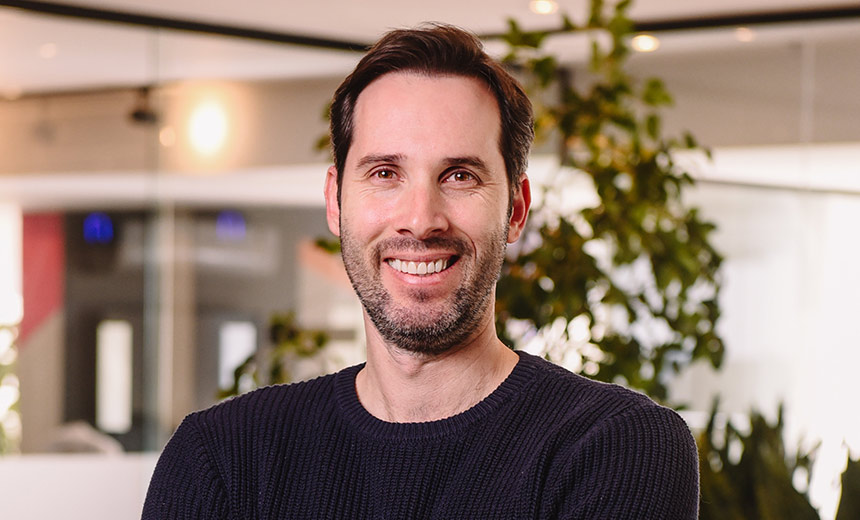Identity & Access Management
,
Multi-factor & Risk-based Authentication
,
Security Operations
Passkeys to Strengthen Low-Friction Verification, Integrate With Facial Recognition

Unico purchased a passwordless authentication startup led by the former president of Gigya to add a lower-friction alternative to facial recognition for lower-risk transactions.
See Also: Identity and Access Management (IAM) Market Guide 2025
The Sao Paulo, Brazil-based identity verification provider said San Francisco-based OwnID’s passkey authentication complements Unico’s biometric solutions and is ideal for transactions in which traditional facial recognition may be seen as intrusive, said Head of M&A Marcelo Zanelatto. Unico will integrate passkeys and biometrics to maintain high levels of security while offering seamless user experiences.
“Unico already has a hub in Palo Alto in California, but this is our first clients in the U.S., and it’s very good brands,” Zanelatto told Information Security Media Group. “Nestle, Michael Kors, the NFL, SAP and other companies. So it’s a very good address for Unico and our other solutions in identity as well.”
OwnID, founded in 2021, employs 15 people and closed a $6.2 million seed round in April 2022 led by Mayfield. The company has been led since its inception by Rooly Eliezerov, who co-founder customer identity management platform Gigya in 2006, served as president through its 2017 acquisition by SAP for $350 million and remained with the company until leaving in July 2021 to establish OwnID (see: ID.me Gets $340M in Series E to Scale, Tackle Deepfake Fraud).
How Passkeys, Facial Recognition Tools Can Work Together
While facial recognition is robust and secure, Zanelatto said it is not always optimal for lower-risk use cases where companies prefer a faster, frictionless experience. OwnID’s passkey system addresses this gap by providing a more seamless and user-friendly alternative in low-stakes scenarios such as e-commerce logins or small financial transactions, Zanelatto said.
“They had a very good technical team there that is complementary with our team right here at Unico,” Zanelatto said. “Some part of the team is in the U.S., the other part is in Tel Aviv in Israel.”
Facial recognition offers a high level of biometric security, but it requires positioning the face correctly, undergoing liveness detection and sometimes waiting for system processing, which can be a source of friction for low-risk or high-frequency actions. Although not as inherently secure as biometrics, passkeys are secure enough for common transactions and dramatically reduce drop-offs during authentication.
“Passkey is superior to facial recognition in terms of user experience and speed,” Zanelatto said. “So, it’s three times faster than doing facial recognition. Because to run facial recognition, we need another layer of security that’s called liveness detection. And checking the biometric takes more time than passkey, so it’s fast to the user.”
Unico associates a person’s face with their national identity number, and through repeated interactions, it confirms that the individual is genuine and consistent. Once trust has been established biometrically, Unico then binds that verified identity to a passkey, allowing the user to authenticate through a simple, fast mechanism moving forward. This enables Unico to maintain high standards of identity assurance.
“How you can see that Marcelo is really Marcelo only with facial recognition?” Zanelatto said. “For the first time that I’m seeing Marcelo, I don’t know if this person is really Marcelo.”
Authenticating Across Multiple Services Via a Single Identity
In Brazil and Mexico, Zanelatto said Unico has already built a consent-based biometric identity system that enables users to authenticate across multiple services with a single, verified identity. U.S. companies are less familiar or comfortable with centralized biometric databases, even if consent is obtained. He said building trust around privacy and limited data use for fraud prevention will be essential to success.
“Unico will be the controller of the data, of the biometrics database with the consent of the people,” Zanelatto said. “I think this is the major challenge for us in the U.S., because we need to convince the companies to let Unico be the controller of the data. And this is not easy work to do.”
Because Unico and OwnID already had a commercial partnership prior to the acquisition, many technical integration efforts were already underway, with OwnID’s technology already deployed in some Unico products. However, full integration across Unico’s broader portfolio will take an estimated one-to-two months, and includes creating new bundled products that combine both companies’ strengths, he said.
“We already did a lot of advances in this space, because we tested their solutions before we did the commercial partnership with them,” Zanelatto said. “But there is a lot of work yet to put it inside the other products and get all this together to release a new product in the market. So, this will take time.”
Building a U.S. business from scratch would be difficult for Unico given the entrenched competition, and Zanelatto said acquiring OwnID offered an efficient shortcut into the market with a proven product and an existing base of reputable clients. Unico plans to upsell and cross-sell its broader identity platform to OwnID’s client base, expanding well beyond passkeys into full-spectrum identity services, Zanelatto said.
“Today, we are a leader in LatAm, but we want to be global,” Zanelatto said. “And to be global, we need to be in the U.S. We know the U.S. market is a very competitive market. Doing it by ourselves, without an acquisition, we knew that it would be very hard. Through an acquisition, it’s easier because we start with a certain quantity of very good clients and very good solutions already working for some years.”
